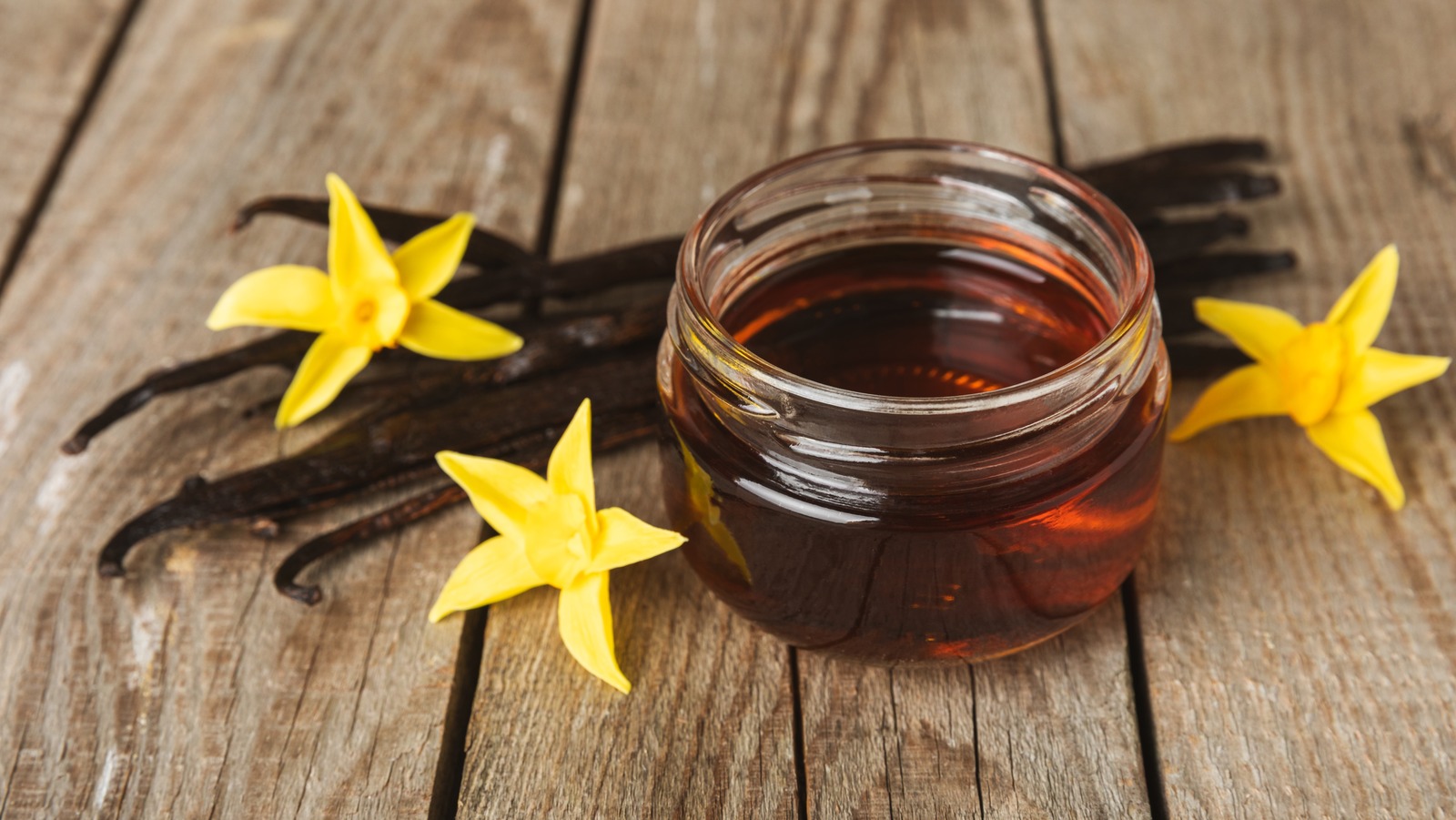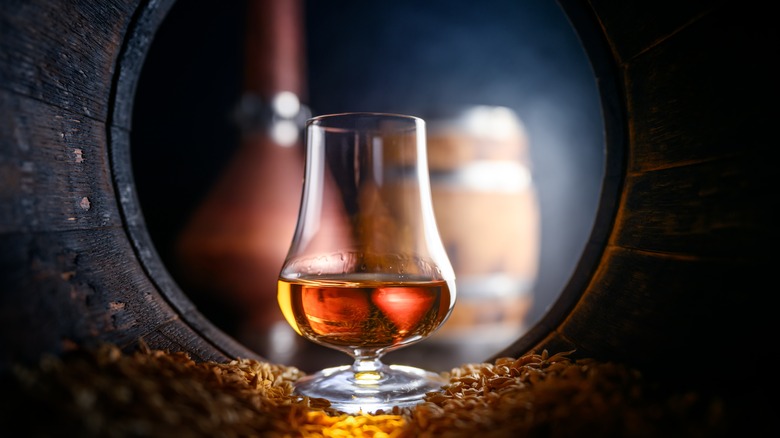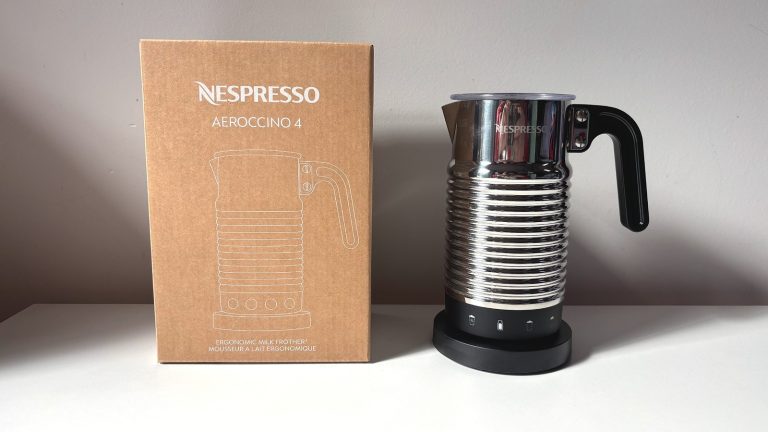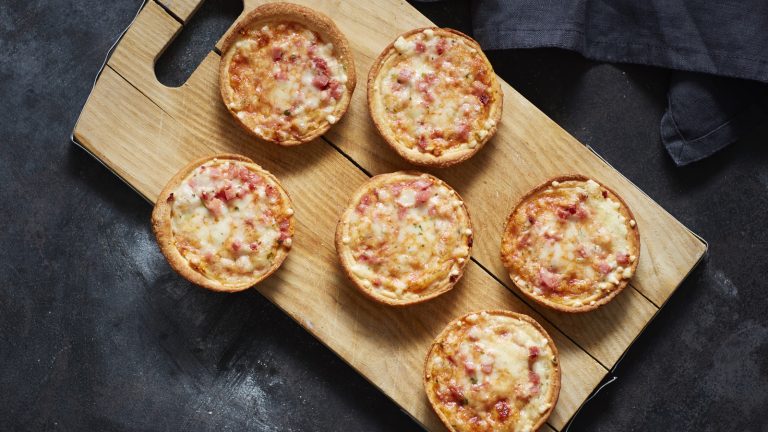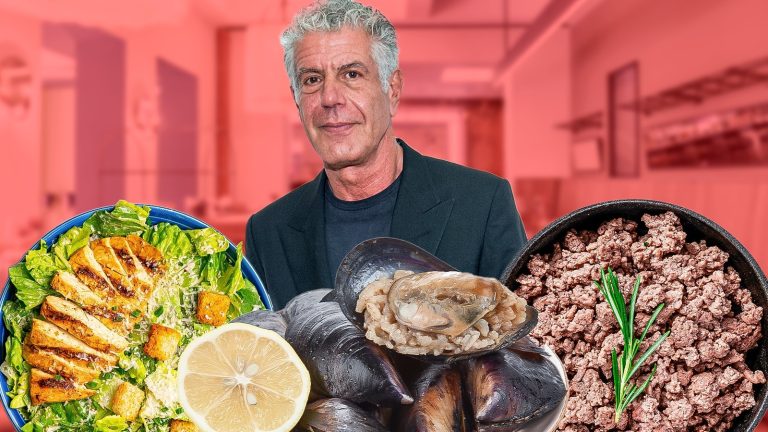In a baker’s kitchen, besides the usual suspects like eggs, flour, and butter, you’ll almost always find a vial or even a bottle of vanilla extract. This super-fragrant “liquid gold” seems to appear in every other baking recipe, from classic pound cake to rich cream puffs. That’s why if you ran short and forgot to stock up … well, your baking project’s halted on its track. The good news is that a great alternative for vanilla extract is probably hiding in your house right now. More specifically, in your liquor cabinet!
Yes, a glug of liquor can actually be a great stand-in for that pricey bottle of vanilla extract you’ve just been fresh out of. If you’ve ever made homemade vanilla extract, you’d know the reason why this trick works: vanilla extract is simply vanilla beans soaked in hard liquor (like vodka) until the sweet scent and flavor are sapped out of the beans. So, if you don’t have vanilla, you can just add the liquor base (about twice as much liquor as the vanilla your recipe calls for will do).
The key, though, is picking the right type, since not any random bottle will do. You’ll want to stick to dark liquors like bourbon or dark rum for one surprising reason: they actually contain vanilla essence out of the bottle!
Dark liquors actually contain vanilla essence
Ever heard bourbon or dark rum being reviewed as having “notes of vanilla” by whiskey enthusiasts? They aren’t trying hard to sound fancy — there’s actual vanilla in there, but the distiller didn’t add it manually to their liquors. The vanilla actually came from the aging process.
Virtually all dark liquors are aged in wooden barrels for periods from months to even years. As they sit in the barrel, they slowly absorb flavors and other compounds from the wood (including natural colorants that give the spirit its signature amber color). Many distillers pick oak barrels for this purpose, and this is the bit that gets interesting. The Australian Journal of Grape and Wine Research found that there’s a compound called vanillin in oak, which would slowly seep into whatever juice you keep in it. As the name suggests, vanillin is actually the compound behind the unique flavor and smell of raw vanilla beans, so there really is vanilla essence swimming in there.
This is exactly why dark liquors work so well as a sub for vanilla extract in your baking projects. You’ll get nearly the same flavor, and honestly, the liquor might add some extra depth that makes your baked goods even more delicious than the original recipe.


